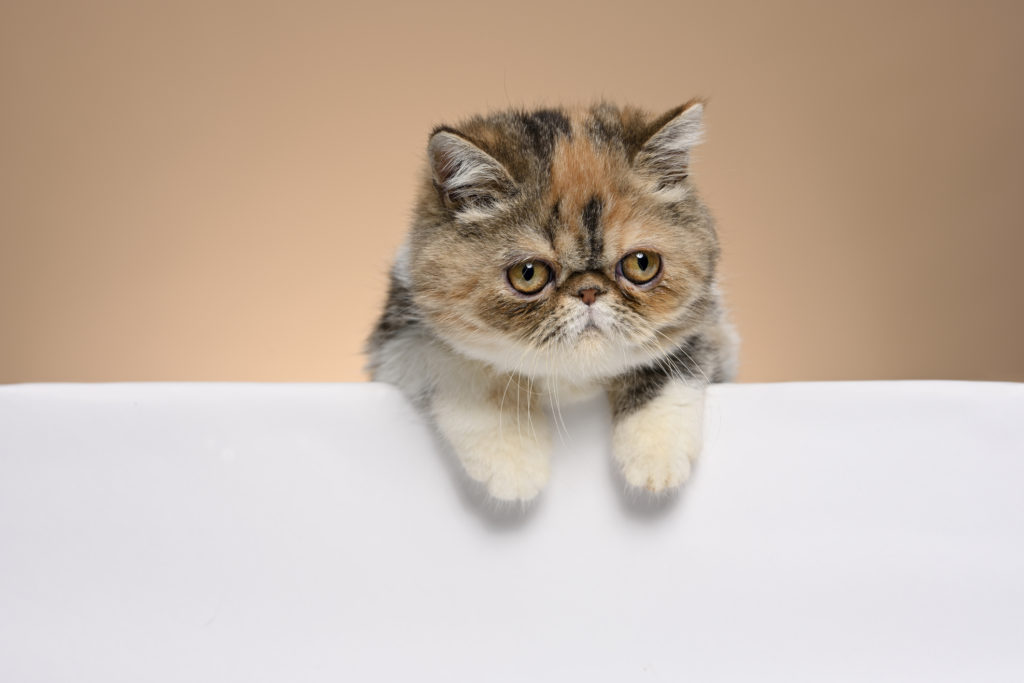We often think cats are all the same, but the personality traits of various cat breeds do set them apart. If you’re thinking about an Exotic Shorthair as a companion, what do you need to know?
For the casual observer, an exotic shorthair looks a lot like a Persian with the same short nose. The biggest difference is the coat. Exotics have a short coat of dense, plushy fur.
They share similarities with their Persian ancestry, but their short fur makes them much easier to groom. And, like Persians, they’re quiet and gentle cats. Exotics are small to medium in size, usually weighing between 6 and 13 pounds. You’ll find a variety of markings, including tabby, tortoiseshell, or pointed.
The Good: A Loyal and Peaceful Companion
The Exotic Shorthair is a calm breed of cat. While they will have energy as a kitten and will enjoy play sessions as they grow, they tend to prefer snuggles over vigorous exercise. They’re comfortable as housecats and don’t do well outside. They also tend to be a quiet cat without a lot of meowing to communicate. Instead, they’ll show you what they want by climbing into your lap and demanding pets.
The Bad: Health Challenges
Like the Persian, Exotic Shorthairs can have medical issues as a result of their short nose. This is known as “brachycephalic” which means “shortened head” and is seen in cat breeds like Exotics and dogs like Pugs and French Bulldogs. It can cause serious respiratory issues as well as eye conditions such as progressive retinal atrophy.
Exotics are Best When:
- They live with a quiet, low-key family
- They stay strictly indoors
- They have their health regularly screened by the vet
- They are given lots of attention and lap time
If you think an Exotic Shorthair is a good fit for your family, we encourage you to talk to purebred cat rescues or visit a local shelter to find an exotic mix. If you do want a purebred Exotic, please research reputable breeders before buying.

